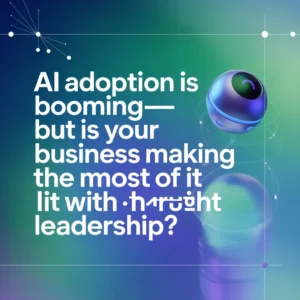Here's a sobering reality check: the cost of a single bad executive hire can reach 15 times their annual salary when you factor in lost productivity, team disruption, and missed opportunities. For UK scale-ups already walking the tightrope between growth and cash flow, this isn't just expensive: it's potentially business-ending.
Yet every month, hundreds of scale-ups continue down the traditional recruitment path, crossing their fingers and hoping their £120,000+ gamble pays off. Meanwhile, the smartest leaders are quietly adopting a completely different approach that's saving them serious money whilst delivering better results.
What's Really Behind the £150K+ Recruitment Disaster?
The headline figure isn't just the salary. It's the recruitment fees (often 20-30% of annual salary), the months of lost productivity whilst you search, the onboarding costs, and the crushing realisation six months in that your "perfect candidate" isn't quite so perfect after all.
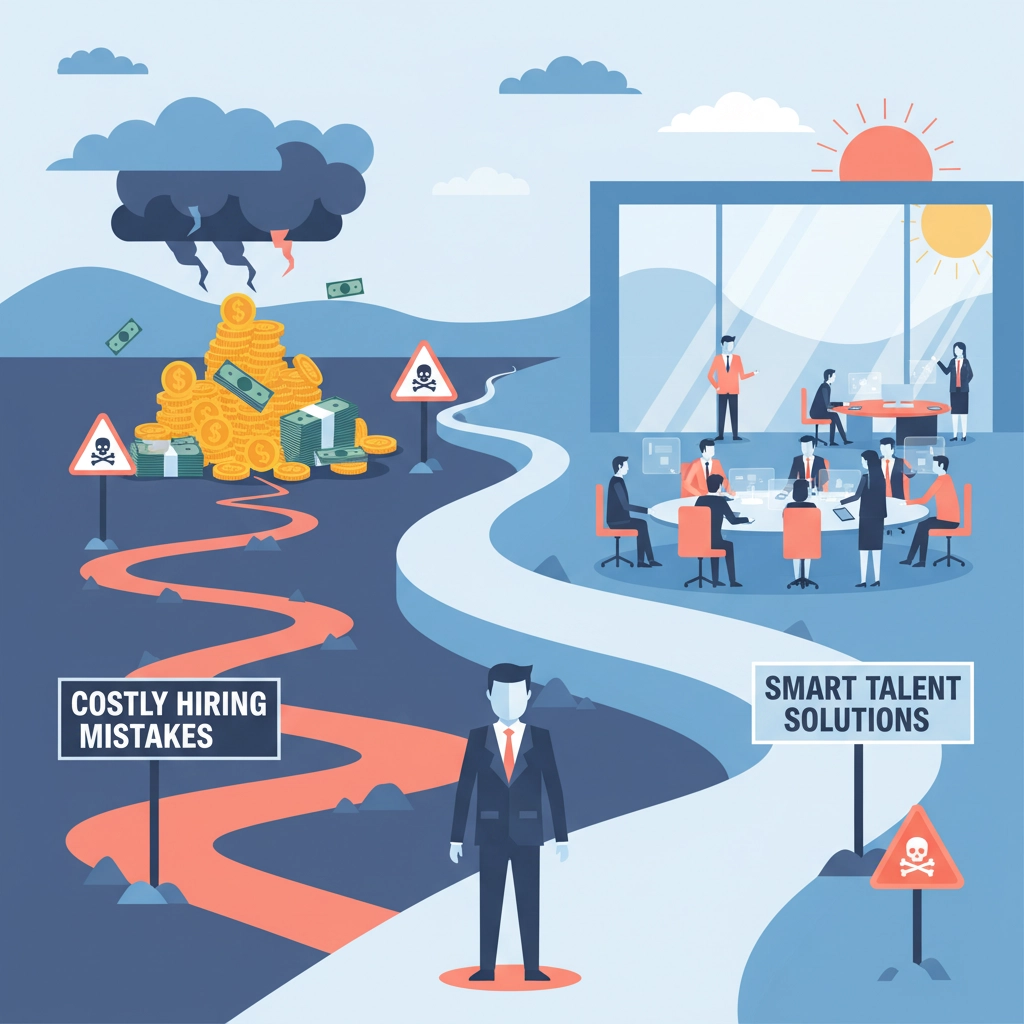
Consider this: a typical C-level recruitment process takes 3-6 months. During this time, critical business functions go unmanaged, opportunities slip through the cracks, and your team struggles without proper leadership. The opportunity cost alone often exceeds the actual salary you'll eventually pay.
Then there's the commitment trap. Once you've hired someone on a £120,000+ package, you're locked in. Even if they're not delivering, the legal complexities and costs of letting them go often mean you're stuck for at least 12 months. It's like buying a house when you only needed a hotel room.
Why Traditional Executive Hiring Is Broken for Scale-Ups
Traditional executive recruitment was designed for large corporations with predictable needs and deep pockets. Scale-ups operate in a completely different reality. You need senior expertise, but often for specific phases or projects, not permanently. You need someone who can hit the ground running, not spend three months "getting up to speed."
The traditional model forces permanent solutions onto temporary problems. Need a Marketing Director to launch into European markets? That might be an 18-month project, not a career-long position. Require a Technology Director to oversee digital transformation? Once the transformation is complete, do you really need that role full-time?
Most scale-ups can't afford to make mistakes at the executive level. When 73% of new hires at senior level don't meet expectations in their first year, the traditional approach starts looking less like recruitment and more like expensive gambling.
What Exactly Are Fractional Executives?
Fractional executives are seasoned C-level professionals who work with multiple businesses simultaneously, providing strategic leadership on a part-time, interim, or project basis. Think of them as senior consultants with skin in the game: they're not just advising, they're executing and taking responsibility for results.
These aren't consultants who show up, write reports, and disappear. They're experienced leaders who become part of your team, attend board meetings, make tough decisions, and drive real change. The difference is they do it without the full-time commitment or cost.
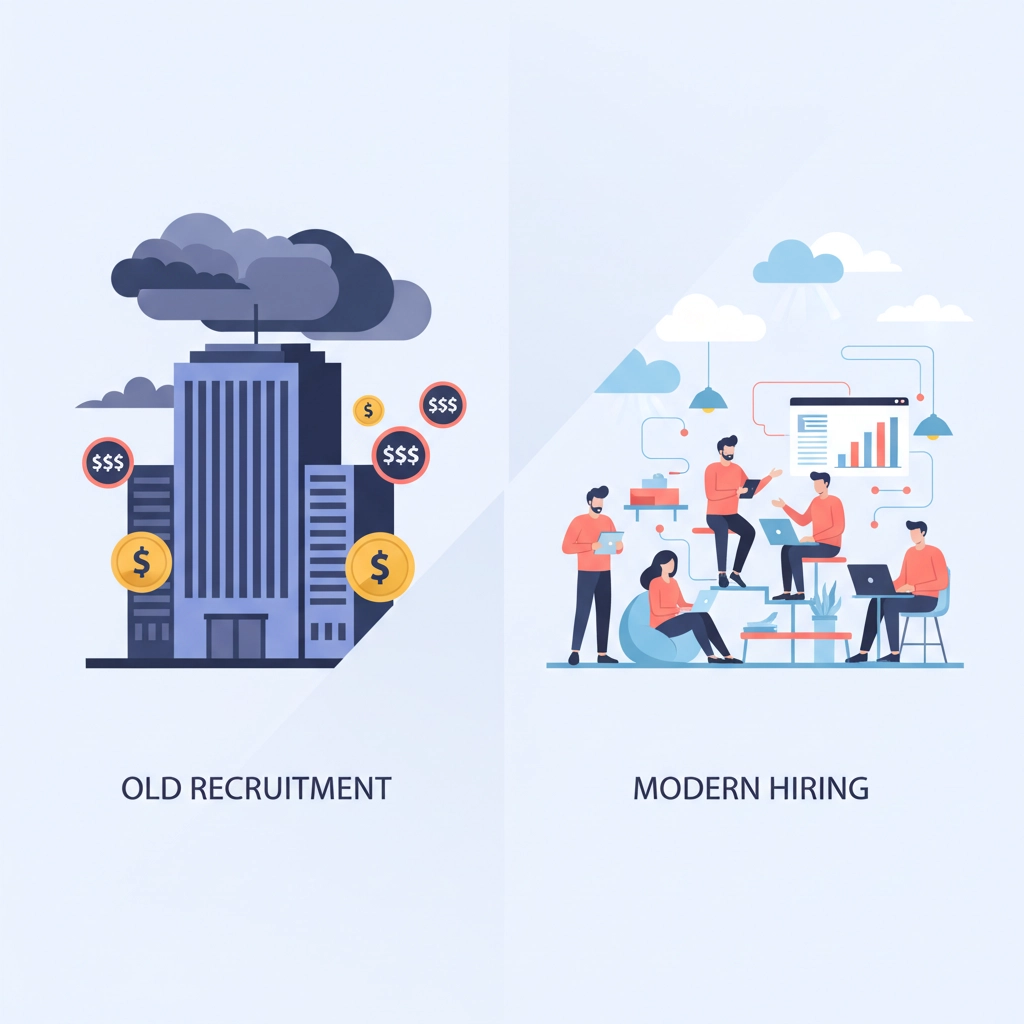
The fractional model works because it aligns perfectly with how modern businesses actually operate. Instead of hiring permanent executives and hoping you've got the right person for an unknown future, you can access exactly the expertise you need, when you need it, for as long as you need it.
The Numbers Don't Lie: Real Cost Comparisons
The financial case for fractional executives is compelling. UK companies report savings of 40-60% in labour costs compared to full-time equivalents. A fractional CFO might cost £3,000-£5,000 per month versus a £120,000 annual salary for a permanent hire.
But the real savings go deeper:
- No recruitment fees: Save the 20-30% of annual salary you'd typically pay agencies
- No benefits or pension contributions: Often adding 20-25% to the total employment cost
- No office space or equipment costs: Fractional executives typically work remotely or use their own resources
- Immediate productivity: No 3-6 month ramp-up period whilst they learn your business
Let's do the maths on a typical scenario. A permanent Marketing Director in London costs around £85,000 basic salary, plus benefits, recruitment fees, and office costs: easily £130,000+ total annual cost. A fractional Marketing Director delivering similar value might cost £4,000 per month, or £48,000 annually. That's a saving of over £80,000 in year one alone.
Speed vs Bureaucracy: Getting Results When You Need Them
Traditional recruitment moves at corporate speed: slowly and bureaucratically. Fractional executives move at startup speed: quickly and pragmatically.
When your biggest competitor launches a new digital initiative or a market opportunity suddenly appears, waiting 4-6 months for traditional recruitment isn't just inefficient: it's business suicide. Fractional executives can typically start within 2-3 weeks, sometimes sooner.
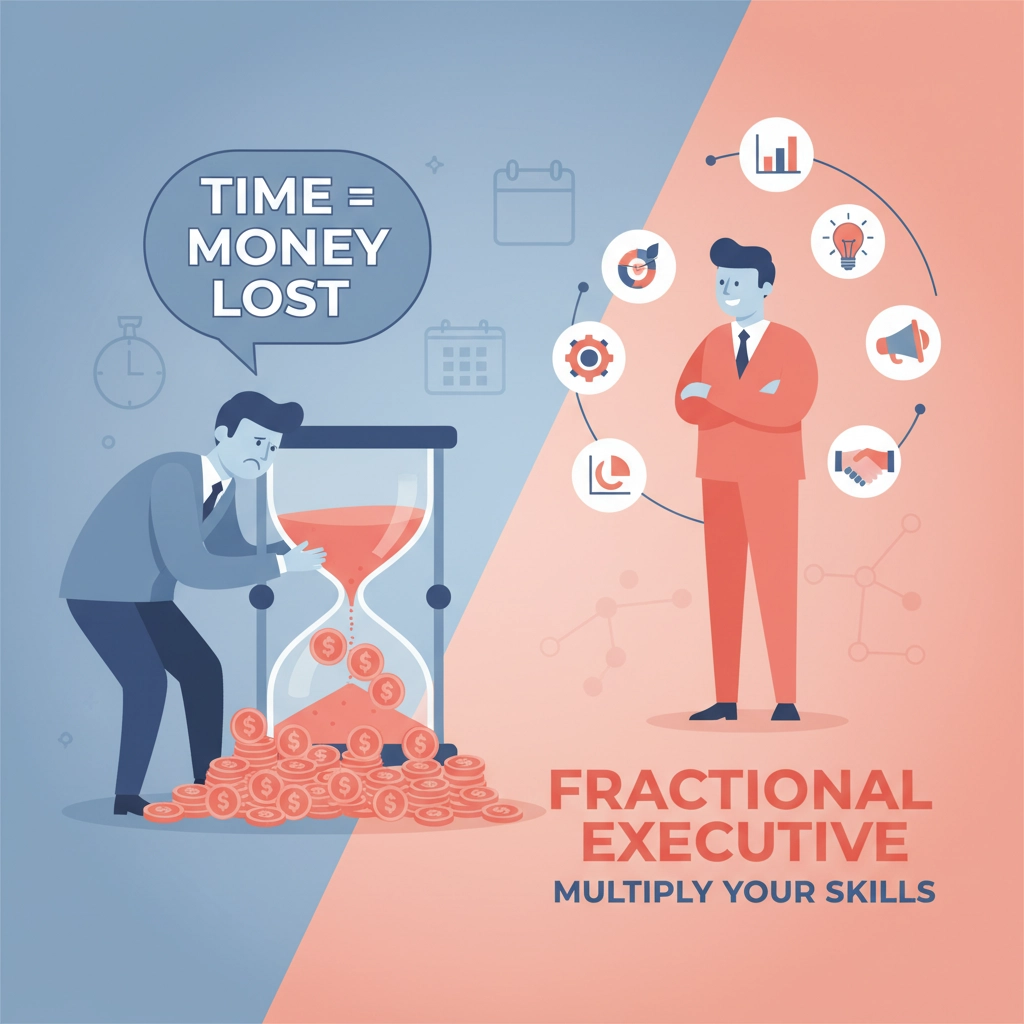
They're also accustomed to jumping straight into fast-paced environments. They don't need months to understand company culture or get comfortable with ambiguity. They assess needs quickly, identify priorities, and start delivering value from day one.
Real-World Success Stories: Fractional Executives in Action
A Manchester software company facing scaling challenges hired a fractional CTO rather than going through traditional recruitment. Within six months, they'd implemented new development processes, modernised their technology stack, and established clear roadmaps for future growth. Total cost: £35,000 versus the £180,000+ they would have spent on a permanent hire.
The result? They achieved their technical objectives faster and cheaper, then seamlessly transitioned the fractional CTO out once the transformation was complete. No awkward conversations about redundancy, no ongoing costs they couldn't justify.
A Yorkshire manufacturing firm needed supply chain optimisation expertise but couldn't justify a permanent Operations Director. Their fractional executive reduced costs by 15%, improved delivery times by 30%, and established vendor management processes that continued delivering value long after the engagement ended.
These aren't isolated success stories. Across the UK, scale-ups are discovering that fractional executives often deliver better results than permanent hires because they bring cross-industry experience, objective perspectives, and intense focus on outcomes rather than job security.
How to Know If Fractional Is Right for Your Scale-Up
Fractional executives work particularly well if you're experiencing any of these situations:
Temporary expertise needs: You need senior leadership for a specific project or phase, not permanently.
Cash flow constraints: You need executive-level expertise but can't justify the full-time cost.
Rapid change: Your business is evolving quickly and you need flexible leadership that can adapt.
Testing new markets or initiatives: You want to try something new without making permanent commitments.
Post-acquisition integration: You need experienced leaders to manage complex transitions.
The fractional model is particularly powerful for scale-ups because it allows you to access multiple specialists as needed rather than trying to find one person who can do everything adequately.
Making the Switch: What Smart Leaders Are Doing
Forward-thinking UK scale-ups aren't replacing their entire leadership team with fractional executives overnight. They're being strategic about where and when to use this approach.
Many start with areas where they need immediate impact: digital transformation, international expansion, or operational efficiency improvements. Once they see the results, they become more confident about using fractional executives for other functions.
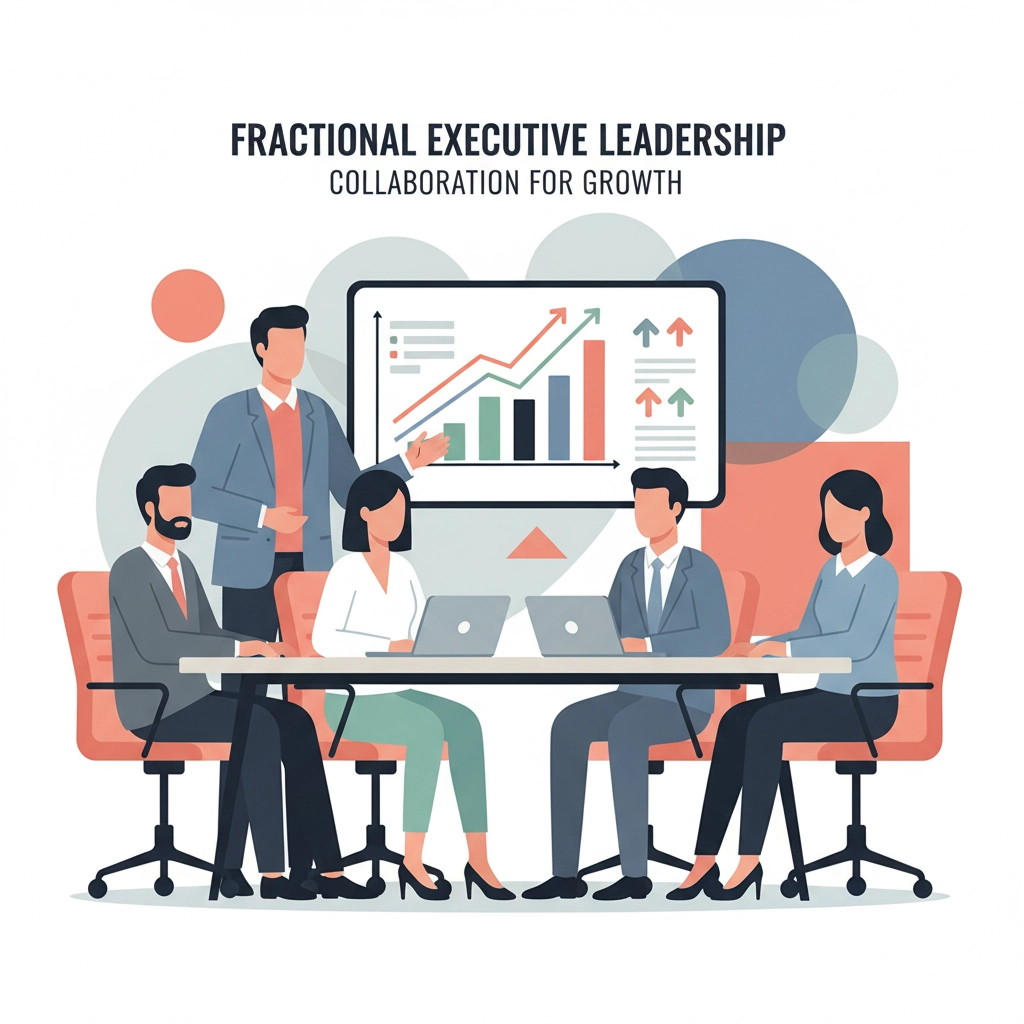
The key is viewing fractional executives not as a cost-cutting measure, but as a strategic tool for accessing world-class expertise without the traditional constraints and risks of permanent hiring.
Smart leaders are also using fractional executives to build internal capability. Rather than just doing the work, the best fractional executives transfer knowledge, train teams, and establish processes that continue delivering value after they've moved on.
The Future of Executive Leadership
The rise of fractional executives isn't just a trend: it's a fundamental shift in how businesses think about leadership. Instead of viewing executive roles as permanent positions that need to be filled, successful scale-ups are viewing leadership as a service that can be accessed flexibly and strategically.
For UK scale-ups operating in uncertain markets with limited resources, this approach offers something revolutionary: the ability to access senior expertise without the career-limiting risks of traditional recruitment mistakes.
The question isn't whether your business needs executive leadership: it's whether you can afford to keep doing it the expensive, risky, inflexible way. The smartest scale-ups have already found their answer.
The £150,000+ recruitment mistakes aren't inevitable. They're a choice. And increasingly, UK scale-ups are choosing differently.


